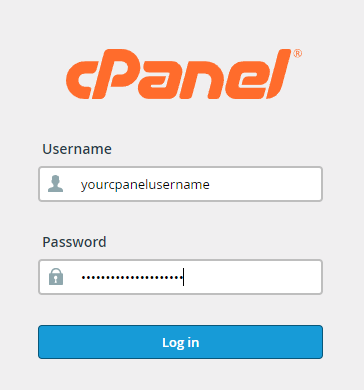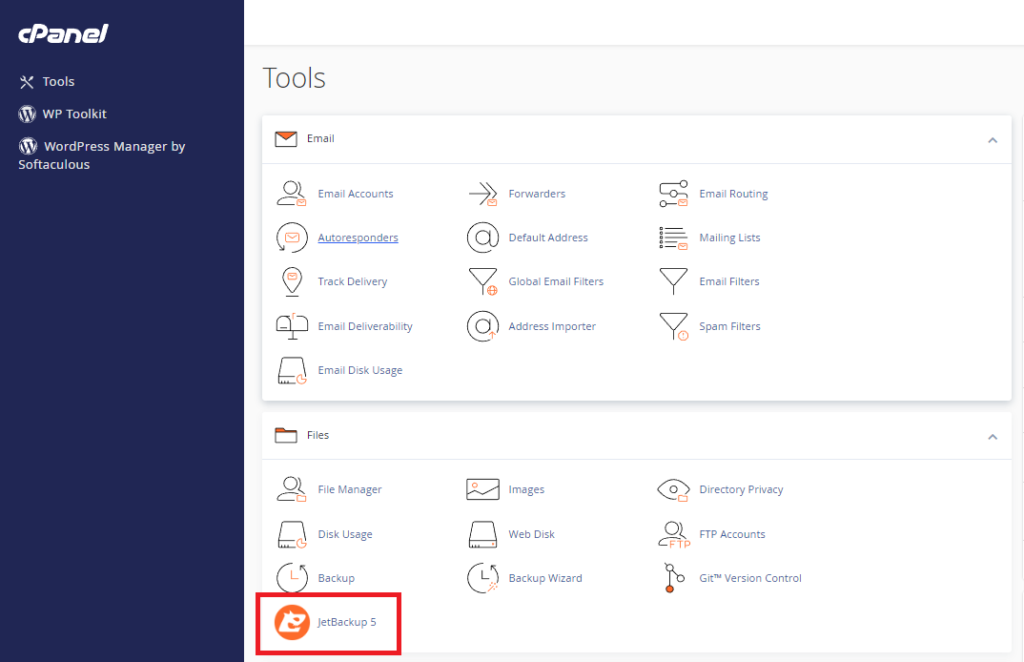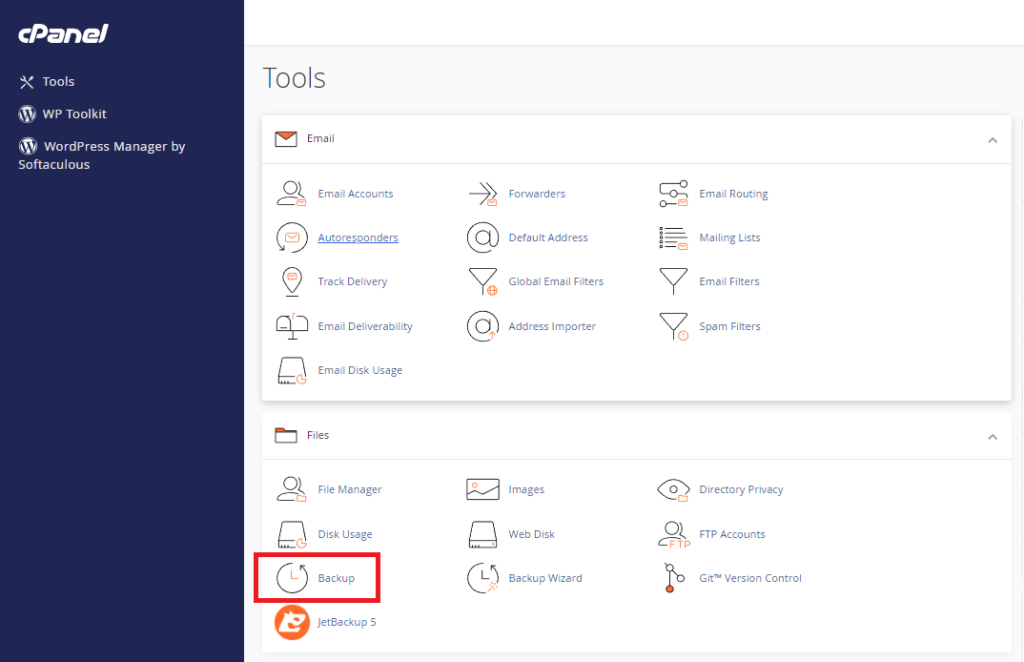To login to your cPanel account, you can login via
- https://yourdomain.com.au/cpanel (your actual domain) or;
- via MyToolbox.
Your cPanel username and password would have been sent to you in the email when you signed up with us, subject titled “New Account Information“. If you have misplaced this email, please contact us and we are happy to resend you this email.

Note: Backups created by the scheduled JetBackup service are the sole exception and will not count towards your disk space allowance.
Perth Web Hosting recommends maintaining regular backups of your website. By maintaining backups, you can recover your website much faster in the event that it goes down.
We also encourage our customers to keep a copy of their backup on their local device.
You can download backups from File Manager, and reupload them at a later date if they are needed.
There are different types of backups available, each with their own pros and cons.
JetBackup 5
All of our hosting plans come with JetBackup 5 as a complimentary service. We maintain regular backups of your website for 21 days, or 31 days for our premium semi managed plans. Perth Web Hosting can also create JetBackups on demand upon request.
The primary benefit of JetBackups is that they are stored on our backup server, and will not count towards your disk space usage. This means that even if the server hosting your website goes down, your JetBackups are safe.
For more information about JetBackups please read the following articles:
How to do a Partial Account Restore Using JetBackup.
How to do a Full Account Restore Using JetBackup.

cPanel Backup
In your cPanel account, there is a built in Backup function. This function will allow you to take a backup of your entire cPanel account.
Please note that this type of backup will count towards your disk usage limit.
Always ensure you have enough disk space left to create the backup, otherwise it will fail and your services may stop working until you are back within your disk quota limit.
If you are running out of disk space usage, please read this article: How to optimize your disk space quota usage, or contact Perth Web Hosting to discuss upgrading your plan.

Backup Plugins
There are also several types of backup plugins that you can install on your website. Some common examples include Updraft and AllInOne Backup.
These backup plugins allow you to have greater control over your backups, however please note that backups made by these plugins will count towards your disk usage limit.
If you are running out of disk space usage, please read this article: How to optimize your disk space quota usage, or contact Perth Web Hosting to discuss upgrading your plan.
Updraft
Updraft is a popular plugin that allows you to schedule regular backups. When taking regular backups, it is important that you keep track of your disk space usage.
It is recommended to keep only the latest backup in your account. If you wish to keep older backups, you can download and store them on your local machine.
You can then reupload them at a later date if you need to restore to that particular backup.
For more information about Updraft, please check out their website: https://wordpress.org/plugins/updraftplus/
All-In-One Migration
The All-in-one migration tool is another popular plugin. Its primary function is to create a backup of your website for the purpose of transferring the website to another server, however it can be used to maintain a backup of your website on your account. Please note that all-in-one creates on-demand backups, rather than regularly scheduled updates.
For more information about All-In-One, please check out their website: https://wordpress.org/plugins/all-in-one-wp-migration/

